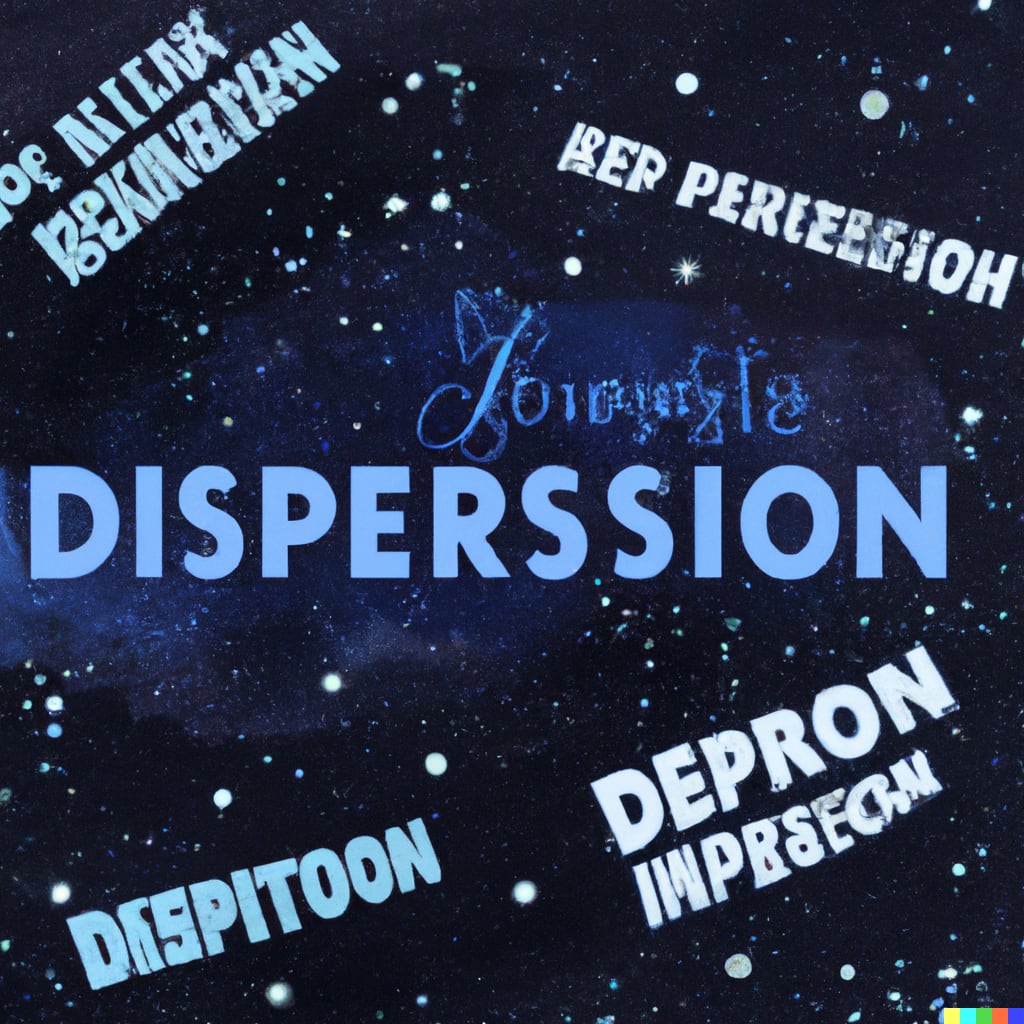Embracing the Light Within: Overcoming Depression and Rediscovering Hope
The guide you need to fight depression

1-Introduction
2-Understanding Depression
-Definition of Depression
-Types of Depression
-Causes of Depression
-Symptoms of Depression
3-Combating Depression
-Seeking Professional Help
-Building a Support System
-Engaging in Physical Activities
-Practicing Self-Care
-Adopting Healthy Habits
-Cognitive Behavioral Therapy
-Medication and Treatment Options
-Alternative Therapies
4-The Importance of Emotional Support
-Family and Friends
-Support Groups and Communities
5-Overcoming Stigma
-Raising Awareness
-Challenging Misconceptions
6-Conclusion
7-FAQs
-Can depression be cured completely?
-How long does it take to recover from depression?
-Can depression affect physical health?
-Is medication the only treatment for depression?
-How can I support someone with depression?
Combating Depression: Finding Hope and Healing
Depression is a complex and debilitating mental health condition that affects millions of people worldwide. It can cast a dark shadow over every aspect of life, making even the simplest tasks feel overwhelming. However, it's important to remember that there is hope and healing available for those struggling with depression. In this article, we will delve into the depths of depression, exploring its causes, symptoms, and most importantly, strategies to combat it and find a path towards recovery.
Understanding Depression
Definition of Depression
Depression is more than just feeling sad or experiencing temporary bouts of low mood. It is a persistent and pervasive mental health disorder characterized by profound sadness, loss of interest or pleasure, and a general lack of motivation. It affects a person's thoughts, feelings, and behavior, often leading to significant impairment in daily functioning.
Types of Depression
Depression can manifest in various forms, including:
1-Major Depressive Disorder (MDD): This is the most common type of depression, marked by persistent feelings of sadness, hopelessness, and a loss of interest in activities.
2-Persistent Depressive Disorder (PDD): PDD, also known as dysthymia, involves long-term depressive symptoms that may be less severe but last for at least two years.
3-Postpartum Depression (PPD): PPD affects new mothers, causing feelings of extreme sadness, anxiety, and exhaustion.
4-Seasonal Affective Disorder (SAD): SAD typically occurs during the winter months when there is less sunlight and is characterized by symptoms of depression that occur seasonally.
Causes of Depression
Depression is a multifactorial condition influenced by a combination of genetic, biological, environmental, and psychological factors. Some common causes and risk factors include:
-Genetics and family history
-Imbalances in brain chemistry
-Chronic illnesses or physical health problems
-Traumatic life events, such as loss or abuse
-Chronic stress or ongoing difficult circumstances
-Substance abuse or addiction
-Hormonal changes, such as those occurring during puberty or menopause
-Symptoms of Depression
-Recognizing the symptoms of depression is crucial for seeking help and initiating the journey towards recovery. Some common symptoms include:
-Persistent feelings of sadness, emptiness, or hopelessness
-Loss of interest or pleasure in previously enjoyed activities
-Changes in appetite and weight (either loss or gain)
-Sleep disturbances (insomnia or excessive sleep)
-Fatigue or loss of energy
-Difficulty concentrating, making decisions, or remembering things
-Feelings of guilt, worthlessness, or self-blame
-Recurrent thoughts of death or suicide
Combating Depression
Seeking Professional Help
If you suspect you may be experiencing depression, it is essential to seek professional help. Mental health professionals, such as therapists or psychologists, can provide a diagnosis and recommend appropriate treatment options. They offer a safe and confidential space to explore your emotions and develop coping strategies.
Building a Support System
Creating a support system is crucial in the battle against depression. Reach out to friends, family, or trusted individuals who can provide emotional support. Sharing your feelings and experiences with others can help alleviate the burden and provide a sense of belonging.
Engaging in Physical Activities
Regular exercise has been proven to boost mood and alleviate symptoms of depression. Engaging in physical activities, such as walking, jogging, or dancing, releases endorphins, which are natural mood elevators. Start with small steps and gradually increase your activity levels to experience the benefits.
Practicing Self-Care
Self-care is an essential aspect of combating depression. Engage in activities that bring you joy and relaxation. This can include hobbies, reading, taking baths, practicing mindfulness or meditation, and spending time in nature. Nurturing yourself allows you to recharge and build resilience.
Adopting Healthy Habits
Maintaining a healthy lifestyle can have a significant impact on your mental well-being. Ensure you are getting enough sleep, eating a balanced diet, and avoiding excessive consumption of alcohol or drugs. Small lifestyle changes can contribute to a positive shift in your overall mood and outlook.
Cognitive Behavioral Therapy
Cognitive Behavioral Therapy (CBT) is a widely recognized and effective treatment for depression. It focuses on identifying and challenging negative thought patterns and replacing them with healthier and more positive ones. CBT helps individuals develop coping strategies and problem-solving skills.
Medication and Treatment Options
In some cases, medication may be prescribed to manage depression. Antidepressant medications can help regulate brain chemistry and alleviate symptoms. It is important to consult with a healthcare professional to determine the most appropriate treatment plan for your specific needs.
Alternative Therapies
In addition to traditional treatments, alternative therapies can complement the healing process. Practices such as yoga, acupuncture, aromatherapy, and herbal remedies have shown promising results in reducing symptoms of depression for some individuals. Explore different options and find what works best for you.
The Importance of Emotional Support
Family and Friends
Having a strong support network is invaluable when battling depression. Friends and family members can provide emotional support, offer a listening ear, and lend a helping hand when needed. Share your feelings and experiences with your loved ones, allowing them to understand and support you better.
Support Groups and Communities
Support groups and communities provide a safe space for individuals with depression to connect with others who share similar experiences. Being part of a group where you can openly discuss challenges, share coping strategies, and receive encouragement can be tremendously empowering and uplifting.
Need help with mental health or depression click here to find out more
Overcoming Stigma
Raising Awareness
Stigma surrounding mental health can prevent individuals from seeking help and openly discussing their struggles. Raising awareness about depression and challenging the misconceptions and stereotypes associated with it is crucial. Educating society about the realities of depression can foster empathy and understanding.
Challenging Misconceptions
It is essential to challenge misconceptions and myths surrounding depression. Depression is not a sign of weakness or a character flaw but a legitimate medical condition. By dispelling these misconceptions, we create an environment that encourages open conversations and reduces the barriers to seeking help.
Conclusion
Depression is a formidable adversary, but with the right tools and support, it can be overcome. Seek professional help, build a support system, engage in physical activities, practice self-care, adopt healthy habits, consider therapy and medication options, and explore alternative therapies. Remember, you are not alone in this journey. With time, patience, and perseverance, you can find hope, healing, and renewed happiness.
FAQs
Can depression be cured completely?
Depression is a treatable condition, and many individuals experience significant improvements or complete remission of symptoms with appropriate treatment and support. However, the experience of depression can vary from person to person, and it's important to manage expectations and focus on individual progress.
How long does it take to recover from depression?
The duration of recovery from depression varies depending on several factors, including the severity of the condition, the individual's response to treatment, and the presence of any underlying factors. Some individuals may experience improvements within a few weeks, while others may require several months or longer to achieve recovery.
Can depression affect physical health?
Yes, depression can have a profound impact on physical health. It can lead to changes in appetite, sleep disturbances, fatigue, and a weakened immune system. Additionally, individuals with depression may be at higher risk for developing certain medical conditions, such as heart disease and diabetes.
Is medication the only treatment for depression?
No, medication is not the only treatment for depression. While antidepressant medication may be helpful for some individuals, other treatment options, such as therapy (e.g., CBT), lifestyle changes, and alternative therapies, can also play a significant role in managing depression. It's important to work with a healthcare professional to determine the most appropriate treatment plan for your specific needs.
How can I support someone with depression?
Supporting someone with depression requires empathy, understanding, and patience. Offer a listening ear, validate their feelings, and encourage them to seek professional help. Educate yourself about depression to better comprehend their experience and be available to provide emotional support. Remember to take care of your own well-being as well while supporting others.
Need help with mental health or depression click here to find out more






Comments
There are no comments for this story
Be the first to respond and start the conversation.